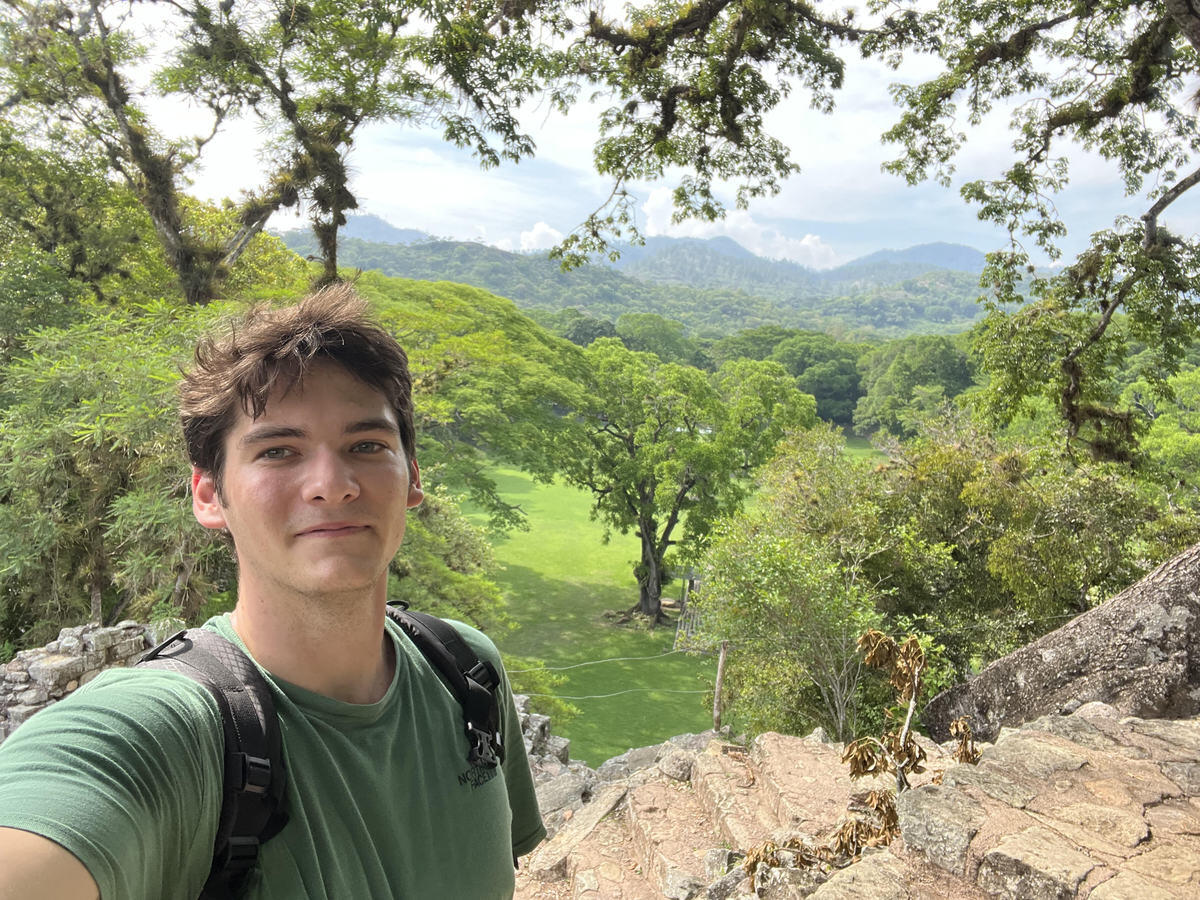
April 8, 2024
Class of 2024: Charles Baker works to protect venomous snakes and reptiles – and has already made a mark in Central America
Share this story
Charles Baker, a senior environmental studies major in VCU Life Sciences, is a lifelong lover of reptiles.
He saves up money from his job at a local company building Koi fish ponds so he can travel to remote locations in Central America and South America to see and photograph rare snakes, reptiles and amphibians.
When he was a junior, he conducted a herpetological inventory for a research station in a remote part of Guyana’s rainforest.
And he’s currently building a nonprofit organization to protect an endangered palm pit viper and other species native to Honduras.
“Charles is a passionate natural historian, in particular herpetologist,” said James Vonesh, Ph.D., a professor in Virginia Commonwealth University’s Center for Environmental Studies. “[He’s] very self-motivated, very much writing his own story and captaining his own ship.”
Baker and a friend traveled to Honduras on several occasions in search of rare and newly described palm pit vipers in the genus Bothriechis. They met and connected with locals who were also interested in the snakes, including a Honduran naturalist, Alex Alverado, who told them about an area that is home to a population of the rarest of the pit vipers, Bothriechis thalassinus, that was threatened by loggers.
Baker and his friend decided to take action, and they set out to cobble together enough money to acquire the property and create the first dedicated habitat preservation for the species.
“We knew we had a rare opportunity to protect this viper, and had to act fast,” Baker said. “Because this was time-sensitive, we couldn’t apply for grants or seek external funding. We gathered money through selling belongings and taking out personal loans. Once we raised enough, we then acquired the property rather unexpectedly. I was in complete shock and was left with a sense of, ‘What did we just do … can we really handle this?’”

After they acquired the property, Baker and his friend began the work to get a nonprofit organization off the ground, based out of both the U.S. and Honduras. They gathered a team of nine board members, including scientists, researchers and professors in both countries, and established a goal to have at least half of the board members be Honduran stakeholders.
“Our organization is called HonduHerp and focuses on ‘herps,’ or the reptiles and amphibians, from Honduras,” Baker said.
The organization is dedicated to safeguarding the natural lands and ecosystems of Honduras, focusing on reptile and amphibian conservation while striving to protect the biodiversity and cultural heritage of the country.
Since it launched in early 2024, HonduHerp has received two land donations and launched an educational program led by Alverado in the town of Santa Rita that is teaching children about the local snakes.
This spring, Baker has been doing an independent study with Vonesh to launch a website for HonduHerp.
“I can say that in my nearly 20 years at VCU, I have never seen a student quite like [Baker],” Vonesh said. “He’s just out there, living his dream and trying to make the world a better place for venomous snakes.”
Following graduation, Baker will start an environmental conservation job, and he plans to continue doing herpetological work as well.
Looking back on his time at VCU, Baker said he enjoyed studying environmental science.
“With so many avenues and research opportunities, an interdisciplinary learning environment is created that results in well-rounded students with a wide variety of interests,” he said. “Although VCU didn’t directly sponsor any of my trips, I could always return to campus and pester the ENVS professors about advice, research questions – [all of which] which helped facilitate my passion.”
Subscribe to VCU News
Subscribe to VCU News at newsletter.vcu.edu and receive a selection of stories, videos, photos, news clips and event listings in your inbox.










